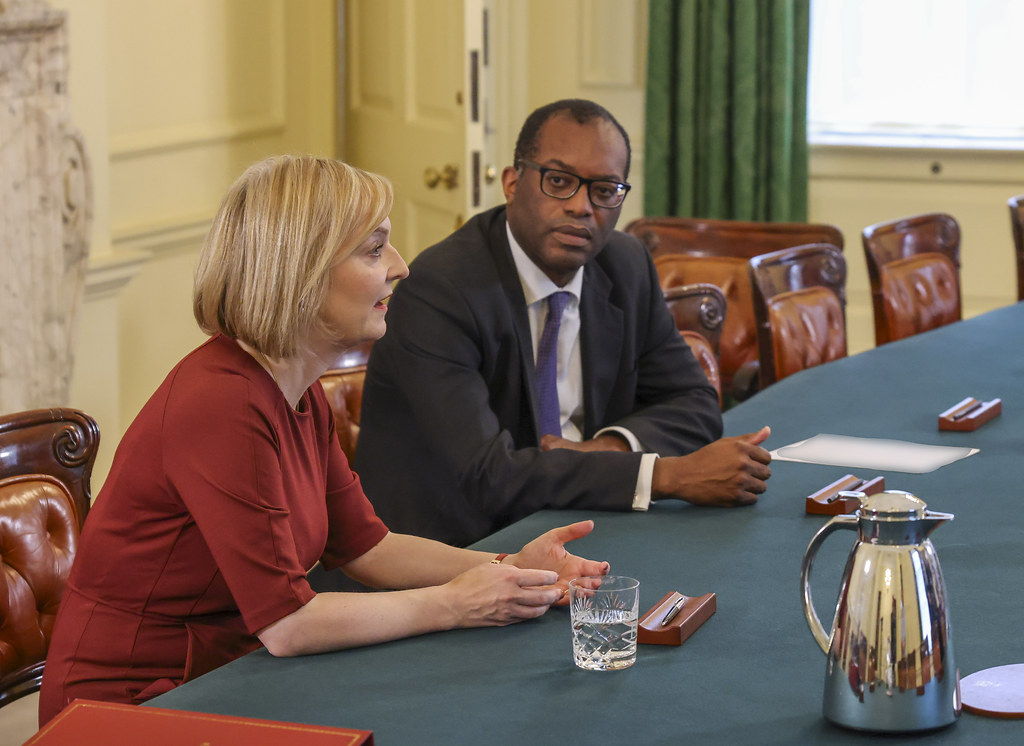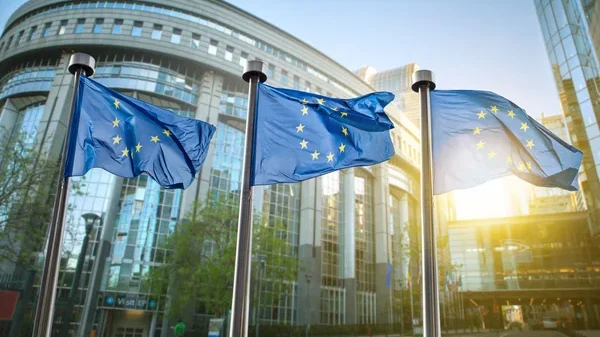Staff writer Fred Taylor looks at Prime Minister Liz Truss and her recent attack on the ‘anti-growth coalition’, questioning if it has any appeal for the electorate.
Liz Truss, the recently appointed British Prime Minister, has a problem on her hands: in just 4 weeks, she has become less popular than her predecessor, Boris Johnson. Described as the ‘Corbyn of the right’, she is deeply motivated by ideology. Her ideas, while theoretically grounded, have struggled in reality. Her first attempts to put them in place led to a crash in the pound, increased government borrowing costs and skyrocketed the price of mortgages.
As a result, the Conservatives are polling at rates as low as 21%. Many are doubting whether she has the capability to be Prime Minister. Adding to her fears is the recent upsurge in popularity of the Leader of the Opposition, Keir Starmer.
Liz Truss’ Solution
Faced with these problems, Truss and her advisors came up with a solution. If you can’t win over people on real issues, make up fake ones where you can.
And so, Truss took aim at all her rivals, branding them as being part of an ‘anti-growth coalition’. This coalition obviously includes her main rivals, Labour. This is despite Starmer’s recent announcement that he had three objectives: ‘growth, growth, growth’.
Another one is the Lib Dems, whom her party were in coalition with when she first came to the Cabinet in 2014. Through the ‘anti-growth coalition’ slogan, Truss is able to present fictionalised versions of her enemies. In these versions, her enemies hate economic prosperity, are out of touch and, obviously, hate Britain. The groups her political rivals together with the other members of this fictional coalition, such as trade unions and climate activists.
These two groups are not as explicitly pro-growth as Labour are. Trade unionists prioritise their members’ conditions and rights to economic growth. Climate activists prioritise the wellbeing of the environment. They are also often willing to disrupt the nation to further their aims, which is profoundly anti-growth. Some of these groups are also very unpopular. For instance, 72% of people disapprove of the fringe climate group Insulate Britain.
At first glance, it may seem like a good plan to liken your enemies to more extreme versions of themselves. After all, it worked for David Cameron, who branded Ed Miliband as the ‘chaos’ candidate.
However, Liz Truss has another problem with reality.
How will Truss achieve growth?
The first hurdle for Liz Truss is that she will struggle to actually deliver growth. Her first attempt at fiscal policy caused profoundly negative effects on the economy, even according to free-market ideologues such as Katy Andrews. She has not (yet) fully departed from these plans, so it is hard to see how they will achieve her objectives in the near future.
However, let us consider how Truss would deliver growth. She has three main tools at her disposal: slashing regulations and workers’ rights, tax cuts and immigration.
Tax cuts and slashing regulation
Her first two tools, slashing regulations and taxes, are the ones she has most publicly and prominently promoted. There are various concerns with using these measures.
The first one is whether they are effective. The government already set out its plans concerning environmental regulation. They included doing away with a lot of regulation to protect the British environment. Truss also plans to introduce and expand fracking across Britain.
This was met with massive opposition from wildlife charities. An environmental activist, Tony Juniper, argued that “even bankers need to eat drink and inhale clean air”. Ultimately, he believes, high-ranking professionals do not want to live in areas with bad standards. If you can’t attract talent, then it is hard to grow the economy. On top of this, there are many economic advantages that having a strong environment can bring. For example, a study showed that restoring UK peatlands could generate £45-51 billion in value, mainly in carbon offsetting. Tory grandees including William Hague have also come out against her environmental deregulation.
Furthermore, tax cuts inevitably lead to spending cuts – in the long term, if not immediately. As Gordon Brown recently articulated, investors look for countries with strong infrastructure, and a highly skilled, healthy, general population. It seems obvious that countries, with, for instance, high crime due to cuts on policing will be less attractive to investors.
The second concern is that even if she does cause growth, the political price will be very high.
Slashing workers’ rights and environmental regulation would hurt the working people who she claims she is on the side of, and needs in order to win the next election.
In addition to this, the idea of tax cuts to the ultra wealthy, funded by borrowing or spending cuts, is also not popular. The country was already outraged by the 45p tax cut, and will be even more so when these types of tax cuts cause policing or NHS cuts.
So even if these measures are successful in bringing about growth, she would still be losing out on voters.
Immigration
There are also problems regarding the third tool: immigration. One of them is that there is a clash between her ideas and those of Suella Braverman (the home secretary).
The lack of availability of low-paid labour is a barrier to growth. There are around 1.2 million job vacancies in the UK. Liz Truss wants to get rid of this barrier by allowing migrants to fill them.
This may be the one measure of hers that could work. The lack of workers could easily be solved by increased migration. This would lead to cheaper labour costs for business, which would make the UK potentially attract more investors.
However, at the Tory Party Conference, Braverman was not only opposed, but appalled by the idea of increased immigration. She also announced ‘her dream’ to send refugee cases to Rwanda.
Immigration is the one area that the Tories could use to their favour. The public have, in the past, seen it as a major issue. While currently it is being over-shadowed by the dire state of the economy, it could certainly rise to salience again.
The Conservatives have a key advantage over Labour in the immigration debate. Namely, as with the Internal Markets Bill, the Tories are not scared to try to break international law. This means that they can use measures which, although popular, break treaties on how to treat those seeking asylum. In fact, Braverman has already set out plans which contradict said treaties. Labour cannot do so because its members tend to support these agreements. Furthermore, it cannot present itself as a credible opposition if it threatens to break international law.
While growth may be achieved through immigration, the Conservatives are keen to not be seen as a pro-immigration party. This is because low immigration policies are a key reason that many voters favour them over Labour, including those who have voted UKIP in the past.
This means that, even if their immigration plans cause growth, the political damage by allowing high numbers of immigrants into the country may outweigh the political success of a stronger economy for Truss. As prominent Brexiteer Nigel Farage said, “I’d rather be poorer with fewer immigrants”.
Conclusion
So, ultimately, Liz Truss’ three tools for achieving growth: immigration, slashing regulation and cutting public services, are not ones she can rely on.
Truss’ farcical claim that anyone who does not prioritise growth over everything is anti-Britain will hold her back at the next election. Ultimately, in looking for economic growth, Truss has lost sight of why we want growth in the first place. That is, to create a better life for those who the economy serves. Economic growth with no growth in quality of life for the working people of the UK is pointless.
















